Frostpunk scenario guide: surviving the city-builder's extra challenges
Frostpunk scenarios 'The Arks' and 'The Refugees' put your management skills to the test in two very different ways.
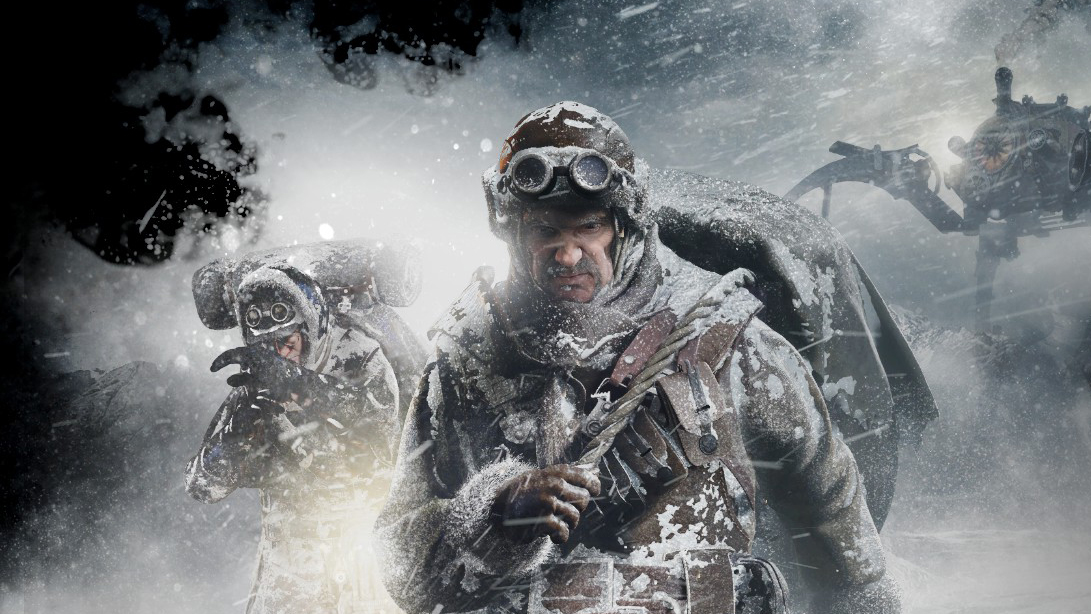
Frostpunk isn’t just about building a city to survive the icy, steampunk apocalypse. After you reach the 20-day mark in the game’s main campaign, you’ll unlock two very different scenarios with added wrinkles that make this grim world that much harder to survive.
Below I've put together some strategies and tips for Frostpunk's two supplemental scenarios: The Arks and The Refugees. We've also got a guide to Frostpunk's main game here.
Scenario: The Arks
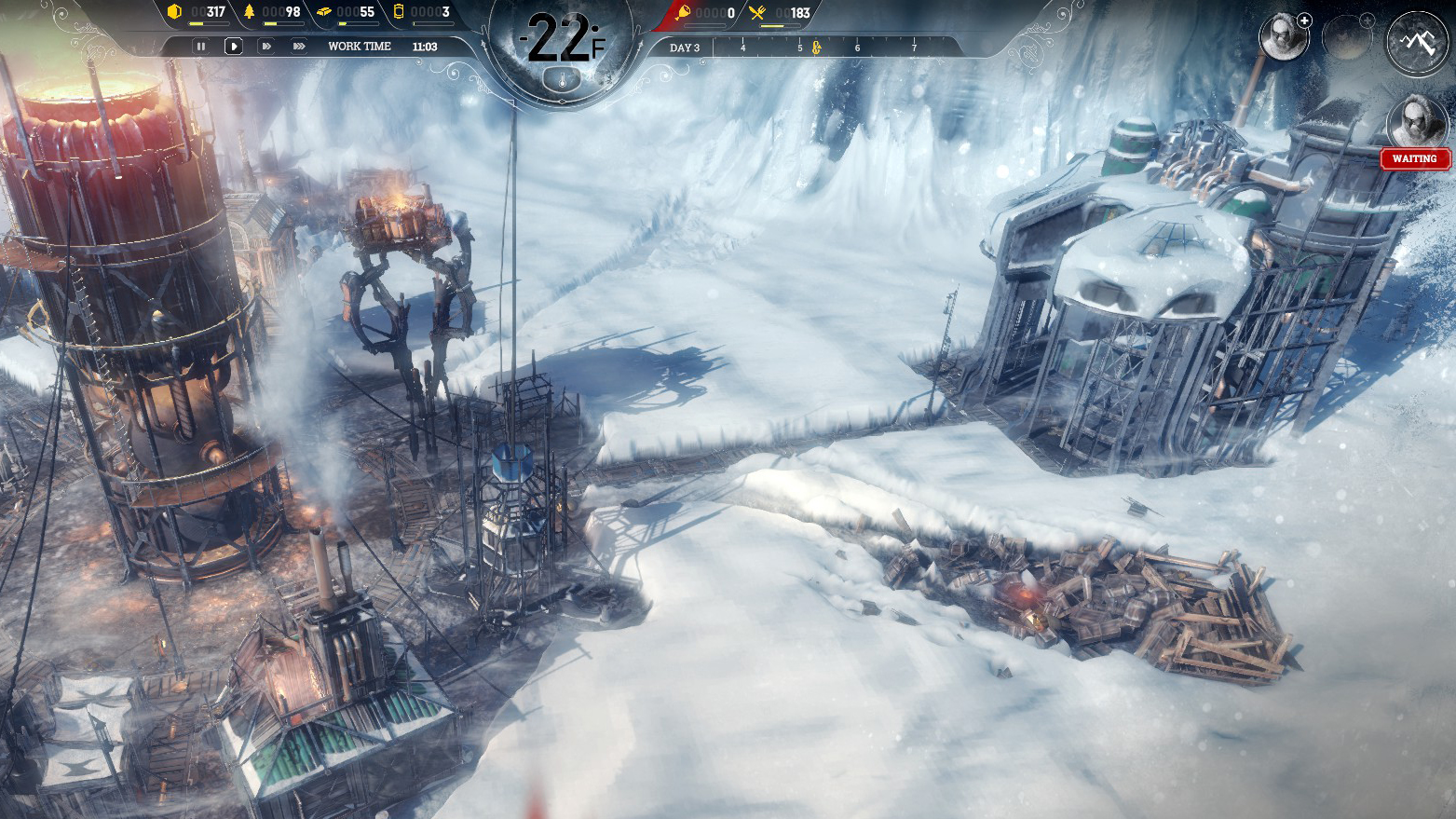
The Arks only offers a skeleton crew of workers—forcing you to rely on constructing a fleet of mechanical spiders to keep four special structures warm throughout the game. These arks contain the world's supply of seeds and seedlings which must be protected from freezing in the falling temperatures at all costs.
Research heaters or steam hubs first and quickly
This is a short, but important note. The Arks’ main objective isn’t just to run a city, but to keep the titular buildings at a level of "chilly" or above. Doing so will require either the heaters or steam hubs upgrades early on to protect the arks from sudden temperature drops.
Resource gathering is very different
Besides having a very small number of human laborers, forcing you to rely on coal-chugging service mechs, the Arks scenario is completely devoid of worker class citizens. This significantly alters the usual flow of resource gathering. Hunter’s huts are totally nonexistent, for instance, so you should hit research level two as quickly as possible in order to build a couple hothouses—your only ongoing source of rations in this campaign. An early cookhouse and one of the food upgrade laws will help stretch your starting supplies until then.
In the meantime, you can use the veritable army of mechs you’ll receive and build during The Arks to work resource nodes outside your typical heat zones. Robots don’t catch pneumonia, after all.
Don’t Recall Your Scouts Too Early
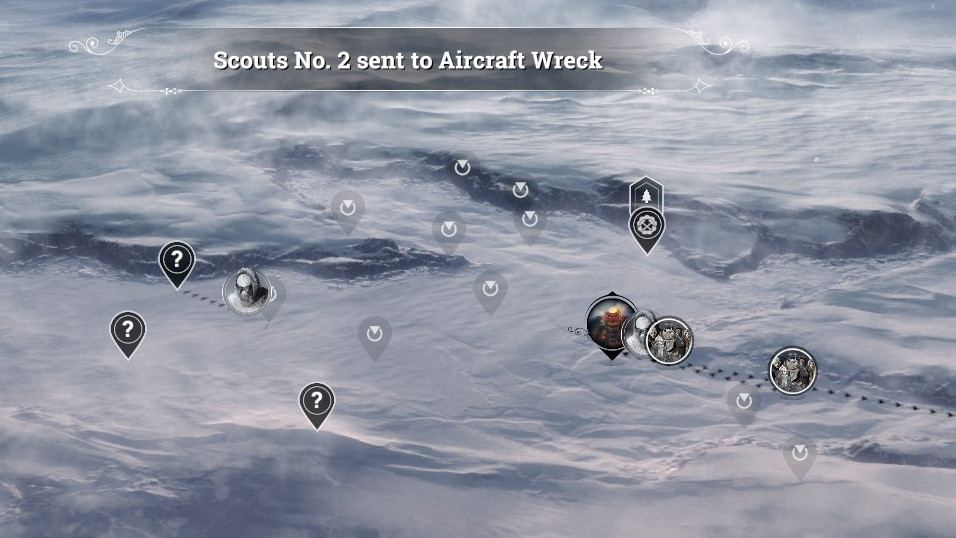
Once you send out your first scouting team, there’s a natural impulse to call them back immediately if they find something. After all, you’re likely struggling for supplies in the early days of a Frostpunk campaign—supplies your scouting teams can bring back free of charge. In this scenario, however, resist that urge until you at least reach the Lost Dreadnought node on the overworld map.
The biggest gaming news, reviews and hardware deals
Keep up to date with the most important stories and the best deals, as picked by the PC Gamer team.
You lose nothing by letting a scouting party soak up resources from multiple nodes, but save a lot of travel time by not returning them to your city between each find. Moreover, The Arks scenario won’t let you research factory technology—which allows you to build those all-important mechs—normally. You only get the blueprints for the building by reaching the Lost Dreadnought. So try to hold off on recalling the party before that important story beat.
Scenario: The Refugees
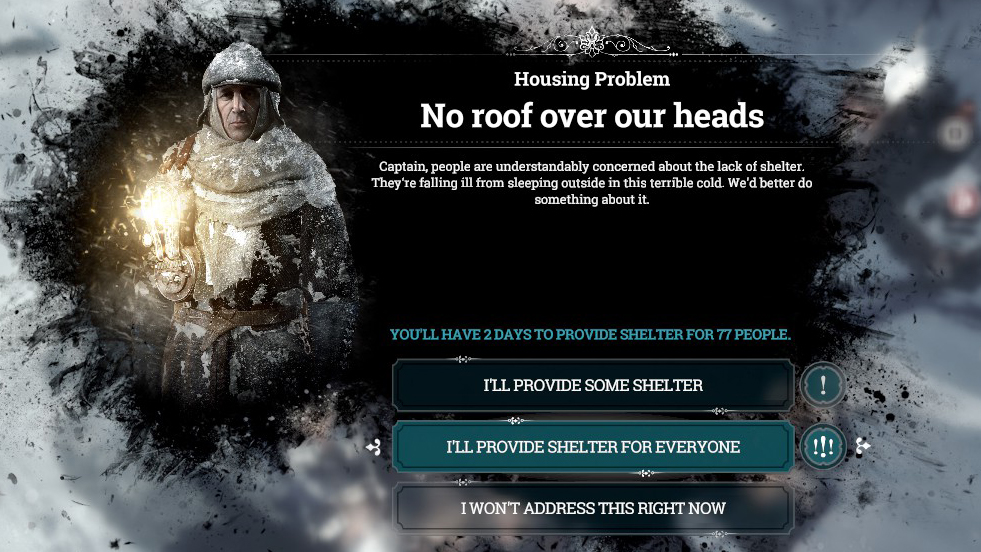
The Refugees scenario, meanwhile, floods your city with wave after wave of sickly citizens that must be kept alive. This can cause a crisis not only in terms of elements such as housing and food supplies, but also in the attitudes of your current residents toward their new and largely unwelcome neighbors.
Sign a Purpose law sooner than normal
In the main game and Arks scenario, Purpose laws aren’t available at the start. That the Refugees storyline opens them up to you immediately should be your first clue that you’ll want one of their unrest-quelling upgrades early. That’s because this campaign sports so, so many more people. More people mean more complaints. More complaints mean more crises—like demanding food, heating, and health care. You’ll likely have a much harder time fulfilling all of these, but churches and/or town hall meetings will help assuage the discontent and despair that result from failure.
Prioritize your heat zones
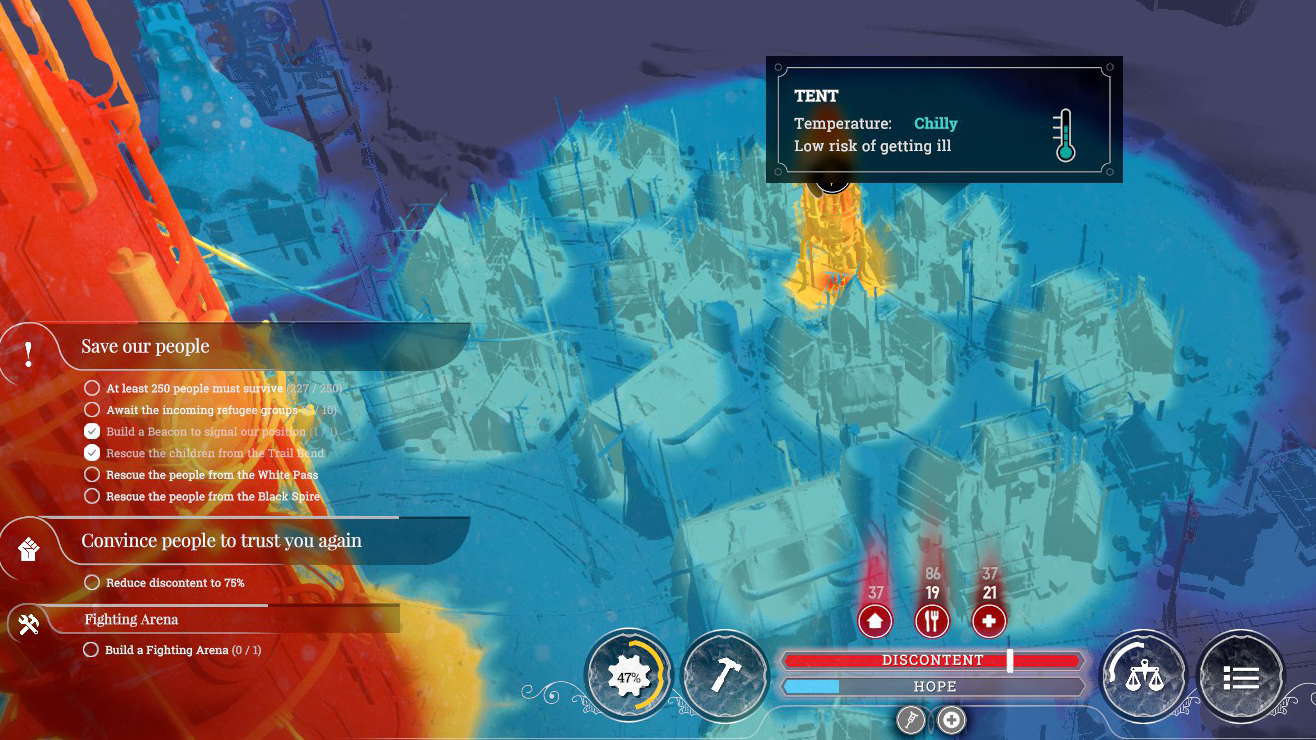
Heat is health in Frostpunk and, since it’s your job to save most of an already-ill flood of emigrants in the Refugees scenario, you’ll need to sharply prioritize that precious warmth. You can start by keeping Medical Posts and housing as close to the central generator as possible. Homes are some of the only structures you can’t cozy up with the Heaters upgrade, so they rely on heat zones produced by the genny and Steam Hubs to keep their occupants healthy.
Medical Posts are a bit more versatile, but since they’re the chokepoint for healing those sniffling citizens, they should be kept as toasty as possible. By contrast, workplaces often start with higher base heat levels and can even be upgraded more-or-less for free with better insulation. Feel free to set those out farther from the city’s center.
Continue to check and maximize efficiency

Building a city that can survive the world of Frostpunk isn't easy. For more helpful Frostpunk tips, check out our guide to getting started.
No matter how well you manage your heat, people are going to get sick. The bad news that this applies to working citizens as much as the unemployed. The worse news is that this causes efficiency at the convalescing employee’s workplace to drop and, Frostpunk wont automatically move a healthy worker in to take their place.
The good news, however, is that there’s an easy solution to this in the Refugees. Any area not working at full capacity will be marked on you map with a bright, yellow bar that’s only filled up halfway. If you see this and have the spare bodies, just go to the building to manage its workers. A couple quick clicks will let you reduce its employee count to zero and then max it back out again. The structure will automatically refill with healthy workers from the available pool while your unproductive patients heal.
Both scenarios: pull citizens off useless structures
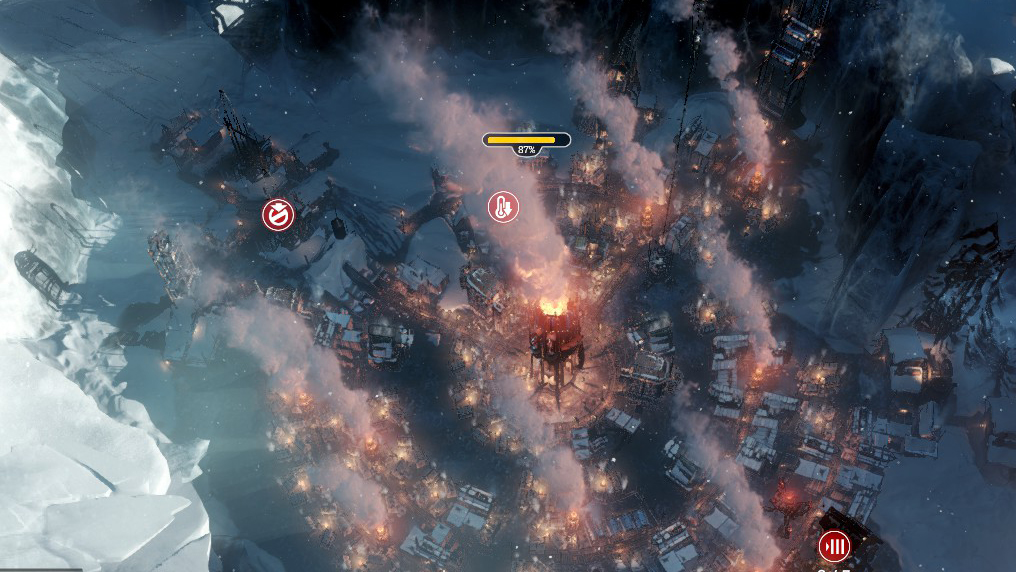
Efficiency requires micromanagement. Put simply, you should never have worker sitting idly in nonfunctional workplaces if there’s something better for them to do. Here are some of the most common examples across all scenarios.
Don’t work the cookhouse if there’s no raw food. Converting raw meat into delicious, thin gruel is important, but only works until your hunters’ haul from the previous night has been fully converted. Once you research hothouses that provide food during the day, this is less of an issue.
Don’t keep engineers in the workshop when there’s nothing to research (or, more likely, while you’re saving up resources). Whatever the reason, if you need to stop researching, put those eggheads to work in the mines for a bit.
Likewise, don't keep engineers in the medical buildings if nobody is sick. This is an exceptionally unlikely scenario, but it can happen—especially during The Arks scenario. No sick people means doctors aren’t necessary.
Finally, don’t collect resources you’re almost out of room to store. If you find yourself with too much of one and too little of another, consider turning lumberjacks into steelworkers, or vice versa. Although it might better to build a Storage Depot and keep drawing a surplus. It’s guaranteed you’ll need more of everything later, anyway.

